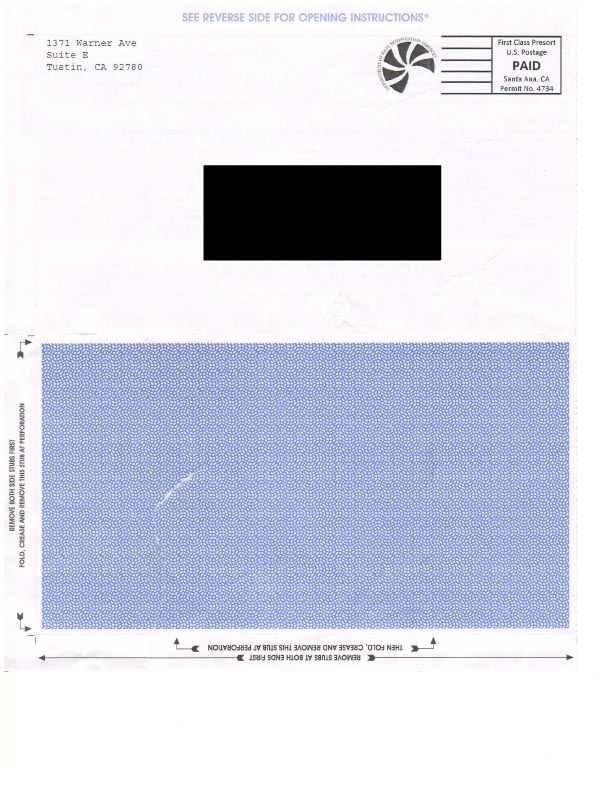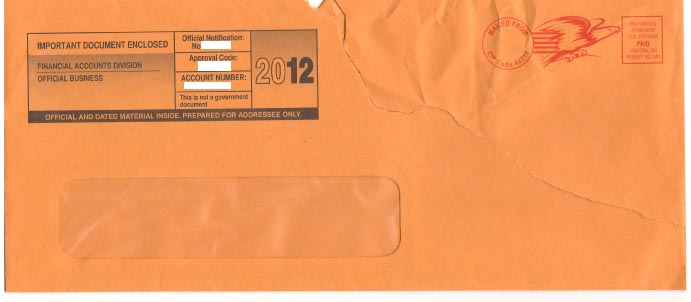

Don't be Deceptive - Avoid Using Scammy Mailers
Every state has a consumer protection law that regulates how suppliers of goods and services interact with consumers. Some states even provide for double or triple damages for consumers, plus attorney fees. If you're marketing your services through the mail, it's important not to run afoul of these laws. I use Ohio law as my demonstrative example, but if you're in a different state, you might find that your law is very similarly written. The important thing to remember is to adopt sound business practices, and don't do deceptive things. This might sound like a no-brainer, but we all get caught up in little "tricks" to improve our open rate or our direct mail response rate from time to time, and it's important to rein them in so that they're not violating the law.
Over the few years I’ve been active on BiggerPockets, I’ve seen a few commercial printers pushing their top-of-the-line products for direct mail — official-looking envelopes that look like they’re being sent from the government.
They're great ideas for pushing your open rate, but there's one problem -- they could be considered "deceptive advertising" by your state's attorney general and you could be subject to fines.
Here’s one example, from the “Department of Rate Notification Services,” in an official looking package. There's no mention of who it's from, but this one is going to get opened and the consumer probably didn't expect to be pitched for a loan refinance.

Here’s another example, giving us the impression that this is an important notice from the IRS.

This envelope goes as far as to inform us that “This is not a government document” in small type inside the “notice.” This is still a deceptive mailer, despite the advertiser’s attempt to disclaim his liability away. This is because of a simple statement in Ohio law that expressly prohibits this type of activity.
The Ohio Administrative Code prohibits “bait advertising” in OAC 109:4-3-03(B). The law reads as follows:
(B) Bait advertising
It shall be a deceptive and unfair act or practice for a supplier to make an offer of sale of any goods or services when such offer is not a bona fide effort to sell such goods or services. An offer is not bona fide if:
(2) The first contact or interview with the consumer is secured by the supplier through deception, even if the relevant facts of the offer are disclosed to the consumer before the consumer views the offered goods or services;
The point of this type of mailer design is exactly what the law forbids: to obtain the consumer’s attention by deceiving him or her into thinking that this might be an important government notice that shouldn’t be thrown away. Even if this mailer said right on the front, “Credit offer inside,” the advertiser would still be on the hook because of the second part of subsection (2) above.
The Ohio Attorney General fined a company for engaging in this type of mailer abuse in Ohio ex rel. Fisher v. Land Marketing, Inc., where a resort corporation used mailers that looked like notices from a federal agency, complete with a return address on Pennsylvania Avenue in Washington, D.C. Even though the envelope didn’t state anything other than “BUY US SAVINGS BONDS,” this was enough to push the court and the AG to find that the mailer is a deceptive practice under Ohio consumer law.
So, we can safely assume that any kind of mailer that intends to trick the consumer into viewing its contents is probably illegal. Putting small-print disclaimers in a deceptive mailer is likely not sufficient to protect you. I urge you to review your state's Consumer Sales Practices Act or retain an attorney who can vet your advertising campaign.
Be honest, and stay out of court!
Comments